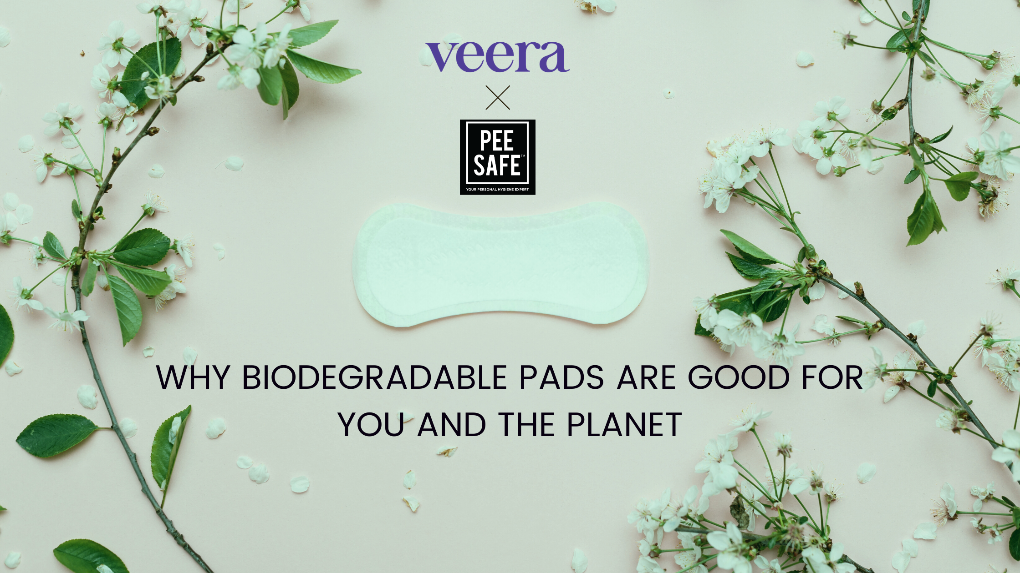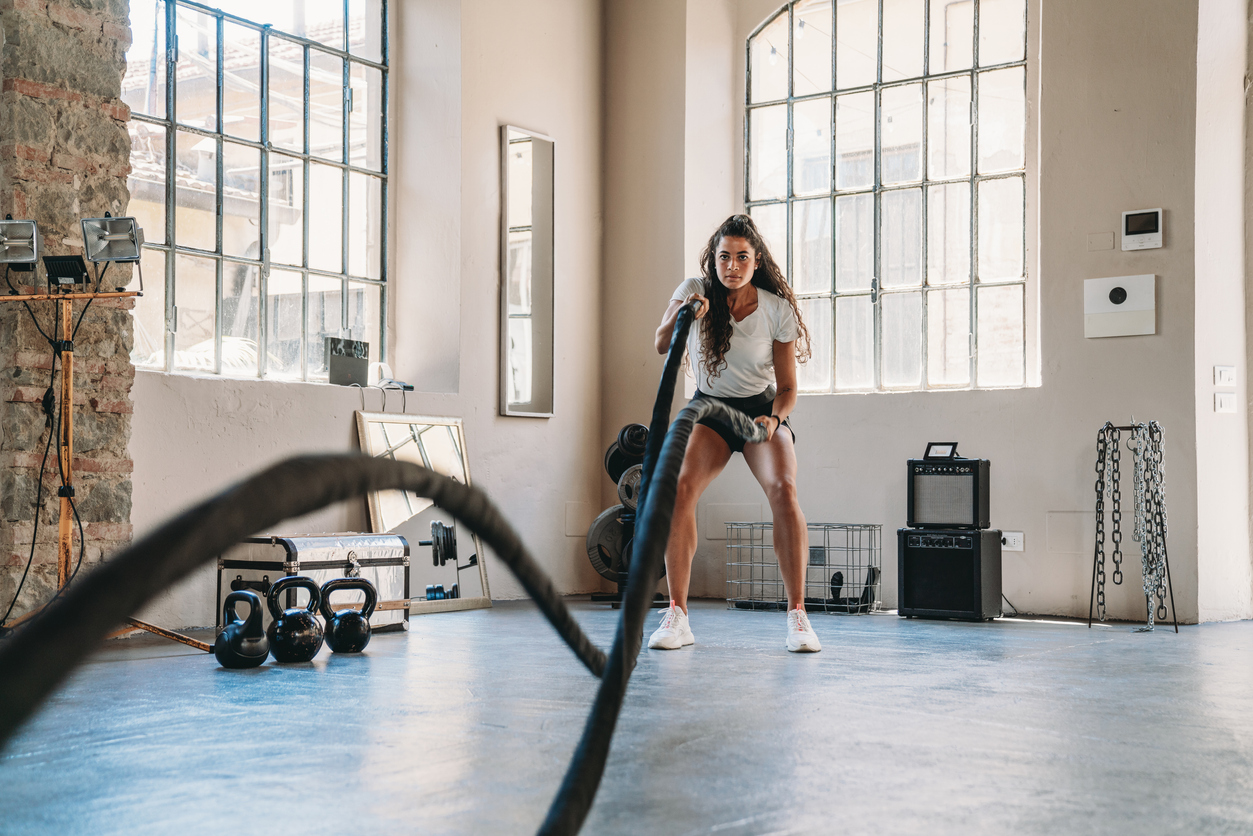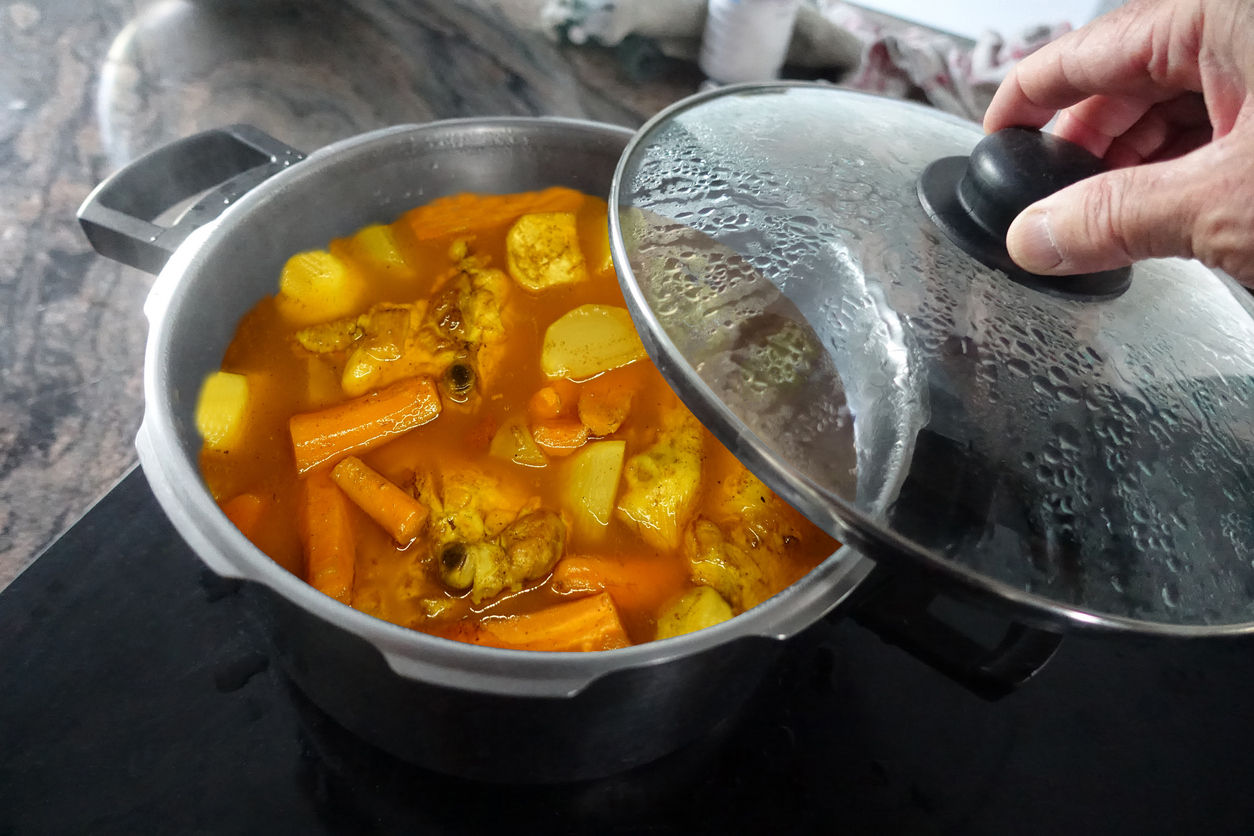Excerpt:
At Veera Health, a women’s health clinic we’ve collaborated with India’s fast growing personal care brand Pee Safe in an effort to help women make more informed decisions about their health and destigmatize discussions about women’s health problems. On World Sustainability Day, we bring you answers from medical experts on why biodegradable pads are not just a fad.
Why is everyone talking about biodegradable pads?
When you look at any of the traditional pads and panty liners available in the market, they often contain 90% plastic, chemical-based gel, fragrances and as a result, are not biodegradable. Per Menstrual Health Alliance India, one pad can be equivalent to four plastic bags buried in the ground, thrown in the open or burnt. Each pad can take 500-800 years to decompose, which chokes landfills and severely harms the environment.
But biodegradable pads, in contrast, are made of compostable, eco-friendly materials such as organic cotton and bamboo pulp. They decompose much faster (often within 1-2 years) and are significantly better for the environment. In a country where over 12.3 billion disposable sanitary pads are used every year, biodegradable pads can alleviate this significant burden of plastic waste.
But what about my health?
Aside from harming the planet, the chemicals and plastic in traditional pads can harm your body too. The natural material in biodegradable pads can decimate your exposure to chemicals and plastic in the most sensitive regions of your body.
A gynaecologist and a dermatologist weigh in
Dr. Mansi Verma, a gynaecologist at Veera Health – a women’s health clinic, says that biodegradable pads can reduce your exposure to skin-harming and carcinogenic (cancer-causing) irritants. Because the skin of the vulva is extremely delicate, it can absorb chemicals more easily than other parts of your body. Besides plastic and chemical gels, many traditional pads can have perfumes or dyes added to them, which can harm the delicate skin down there. Women exposed to irritants from non-biodegradable pads can develop redness, rashes and itching with prolonged pad usage. Aside from local skin irritation, they can suffer from skin discoloration, and hair follicles in the area can get infected – something known as folliculitis.
Dr. Shimoni Kadakia, a dermatologist onboard with Veera Health, says that patients can sometimes develop allergies to the ultra-drying gels or synthetic materials in regular pads. Biodegradable pads are definitely more skin friendly as they are made from cotton and other natural fibres.
“I’d recommend biodegradable pads especially to people with sensitive skin.”
However, using biodegradable pads is not enough, it’s important to dispose of the pads responsibly and ensure that it is segregated as an organic waste, adds Dr. Kadakia.
Dr. Verma recommends using biodegradable pads with the same hygiene practices that you would use with any pad. During heavy bleeding days, like the first two days of your period, change your pad every 4-5 hours. You shouldn’t wait for the pad to be completely soaked to change it because the warm, moist atmosphere becomes a culture media for bacteria to grow over time. If you find yourself needing to change more often than 2-3 hours, you should speak with a gynaecologist as that may be abnormal.
On days with a lighter flow, you can go 7-8 hours before changing or even consider using panty liners to prevent spotting. Changing pads regularly, cleaning the outside area during your shower and wearing free-flowing clothes will also help prevent odours.
It might be time to make a switch
Saying ‘no’ to plastic and chemical additives has never been easier, with plenty of biodegradable pad options available in the market. While they are a bit more expensive than regular pads, they are still a more conscious choice towards the planet and even our bodies.
“I use Pee Safe biodegradable pads myself and I like that they are made from 100% organic cotton”Dr. Verma
Interested in giving biodegradable pads a try? You can read more about Pee Safe’s wide range of products here
https://www.peesafe.com/collections/feminine-hygiene-care
We’re offering a special 15% off Pee Safe products, for every consultation you book with us this month, so download our app and get started here
https://appurl.io/SVETUcwpC
Pee Safe website: https://www.peesafe.com/
If you have more questions about any women’s health issues or would like to know which Pee Safe products to use, you can consult our friendly doctors at Veera Health. We’re a young clinic for women, by women, so feel free to chat with us about anything, Veera is a judgement-free zone !
Who Does It Affect?
Studies have found that more urban rather than rural women are affected by breast cancer in India. It is unclear if this is related to lifestyle or whether they have better access to screening.
Nearly 50% of breast cancer cases in India are occurring in women less than 40 years old which is a newly developing trend. So if you think this is a disease for your grandma – think again. Given this rise in breast cancer cases and in younger women, many cities have opened testing centers in cities. Read about breast cancer screening in our next article.
What Are Some Risk Factors?
Cancer is a complex disease with many risk factors that scientists do not completely understand yet. Lifestyle habits such as smoking or diet, genetics, carcinogens, and environmental factors can increase your risk for cancer. Sometimes, we can’t find a reason. For breast cancer, here are some risk factors that can increase your risk.
Family History of Breast Cancer: If you have multiple family members such as grandmothers, mothers, or aunts that have been diagnosed or if any of them have been detected below age 50 then you may be genetically at higher risk. The most common genes that cause breast cancer are BRCA1 and BRCA2, however, there are several other types as well.
Early Menarche or Late Menopause: Although this is out of our hands, starting your period at a younger age or going through menopause later results in higher exposure to estrogen levels which can increase your risk of breast cancer.
No children compared to having children: Having children and breastfeeding for longer than 2 years is protective against breast cancer. As you lactate and breastfeed, your period is suppressed, reducing your exposure to estrogen.
Obesity: Defined as a BMI (body mass index) greater than 30. Did you know fat cells in the body make extra estrogen? The more the fat in your body, the higher your estrogen levels which ultimately elevates your breast cancer risk.
Combined Oral Contraception and Hormone Replacement Therapy: With prolonged use of combined oral contraception (greater than 3 years) there’s an increased risk of developing breast cancer. Remember, combined oral contraception contains estrogen. Birth control methods with just progesterone or do not contain hormones do not increase your risk of breast cancer. For women using hormone replacement therapy during menopause, there is also an increased risk of breast cancer that should be discussed with your doctor.
If you have questions about your risk for breast cancer, chat with one of our Veera doctors today. Read our next article about the signs and symptoms of breast cancer and screening so that you know when to seek medical attention.
Learn More with Veera Health
If you are confused about the different period products or have more questions around using sanitary napkins, speak to our doctors at Veera who can help you make the right choices.


















